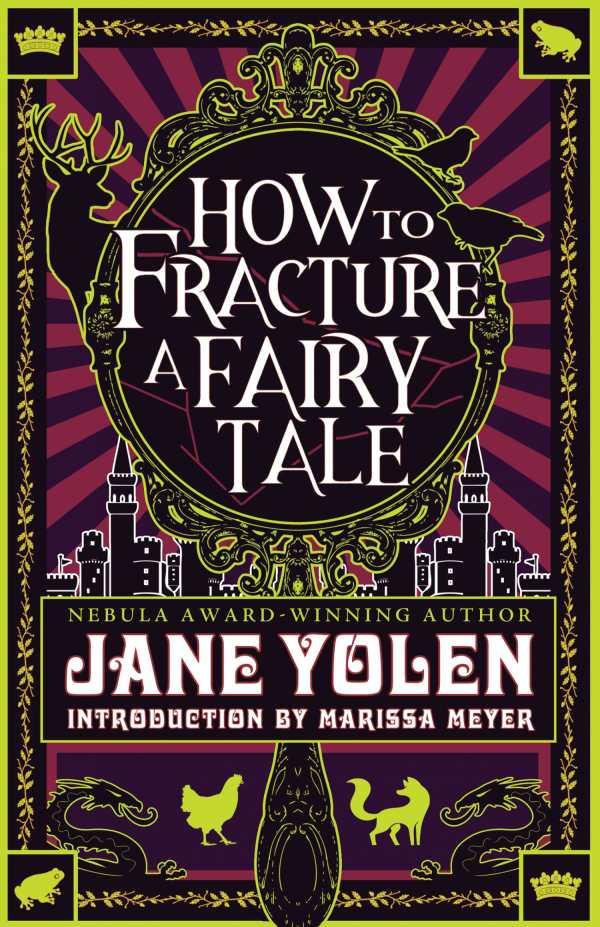How to Fracture a Fairy Tale
Jane Yolen’s How to Fracture a Fairy Tale collects eighteen new and previously published short stories that twist traditional fairy tales. Largely rooted in familiar European stories, the collection also plays with various elements of legend, lore, and fables, including Jewish folktales, Greek myths, and stories with Chinese, Japanese, and Cheyenne roots. The fractures include departures in points of view, time, place, ending, or motivation, always with an eye toward gleaning some new insight from the heart of an old story.
Stories of varying success appear, while an afterword contains additional poems and explanatory notes on each. The more familiar the story or archetype, the harder it proves to achieve a memorable fracture. Humorous stories, such as “The Bridge’s Complaint,” a retelling of The Three Billy Goats Gruff, and “Happy Dens or A Day in the Old Wolves’ Home,” a compilation of retold wolf tales, are amusing but ultimately forgettable. Stories like “The Moon Ribbon,” “Brother Hart,” and “One Old Man, With Seals” take elements of lesser-known stories and turn them into something atmospherically familiar yet wholly original.
While fairy tales have always been culturally rooted teaching stories that are changed by time and teller, these fractures run the gamut from culturally appropriative to haunting. Some retellings borrow the stories of ethnic or cultural minorities and gut them to house a new message that, no matter how well intentioned, wafts of minstrelsy. When the familiar themes of Yolen’s catalogue—feminism, Appalachia, European Judaism, and the Holocaust—reappear, her insider’s perspective brings depth to the originals, both in what’s kept and in what’s abandoned.
A pioneer of the modern fairy tale retelling, Yolen’s work is foundational. This latest collection records the template on which the genre was built.
Reviewed by
Letitia Montgomery-Rodgers
Disclosure: This article is not an endorsement, but a review. The publisher of this book provided free copies of the book to have their book reviewed by a professional reviewer. No fee was paid by the publisher for this review. Foreword Reviews only recommends books that we love. Foreword Magazine, Inc. is disclosing this in accordance with the Federal Trade Commission’s 16 CFR, Part 255.


